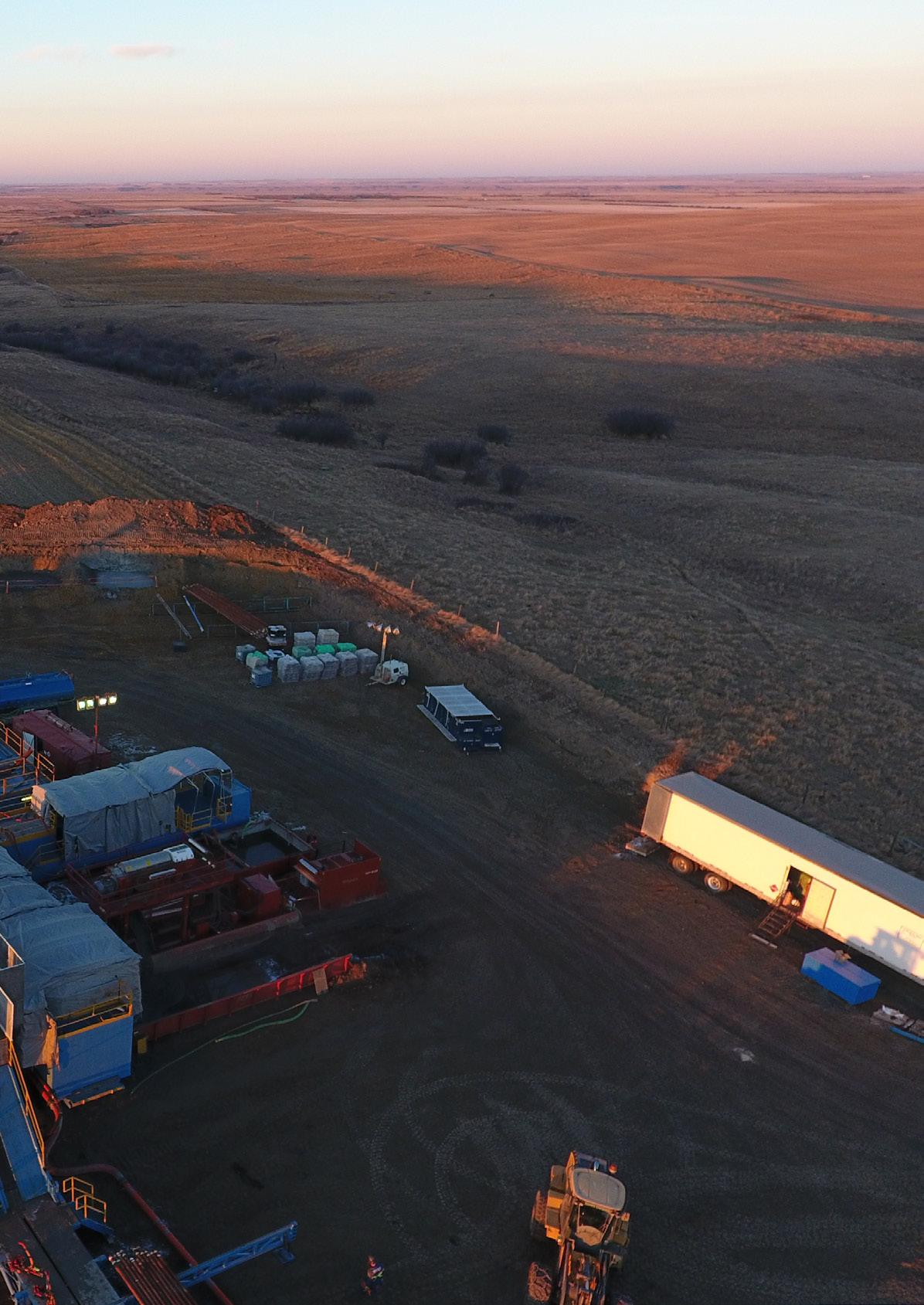
9 minute read
Gensource Potash
GENSOURCE
POTASH A pioneering vision for the future of the global potash market
Advertisement
Gensource Potash is an innovative pre-production company in the potash industry with a plan to operate in a markedly different manner to the incumbents of the global fertiliser market. The TSXV-listed firm’s business model rests on two core ‘pillars’ – the first is to be a small, efficient and environmentally sustainable potash producer and the second is to be vertically integrated from mine to farm. Gensource’s vision is to ‘achieve food security by supplying the world with a key macronutrient at an affordable cost within an open, transparent and sustainable environment’. “We think our vision represents the way potash will be done in the future,” says Gensource’s president and CEO Mike Ferguson. “Our method is clean, efficient and we have the end-user, the farmer, in mind. It’s focused on what the market needs rather than what’s best for the producers of the product.”

Gensource aims to ultimately create a series of smallscale and environmentally sustainable potash production facilities referred to as ‘modules’, with the Tugaske Potash Project in Saskatchewan, Canada being the first module to be developed by the company. K+S subsequently brought the large-scale solution potash mine into production in May 2017 and the US$4.5 billion project (later renamed the Bethune mine) is expected to produce 2.86 million tonnes (Mt) of potash per year by 2023 and that could still be ramped up further to 4 Mt per year.
Skin in the potash game
The Gensource team has worked in potash production for several decades and developed a collective insight into the workings of the industry, focusing particularly on market-focused improvements. In fact, the core team at Gensource is the same one that led a company called Potash One from 2007 to 2011. This Canadian firm developed the Legacy potash project in Saskatchewan until it was acquired by German fertiliser manufacturer K+S Aktiengesellschaft. “It was a conventional solution mining method and a typically large potash project that required a lot of money and time to develop and construct. The global potash industry has been, at times, a true cartel, but nowadays is more properly described as an oligopoly. “For this reason, it’s been very difficult for outside players to enter the fray, regardless of whether they can afford to pay the billions of dollars required to develop the large tonnage projects. “While we were still developing the Legacy project at Potash One, we started to develop these ideas of small-
scale, efficient production. After selling the project, we reconvened within Gensource to implement those ideas around entering on a small scale with environmentally friendly mining practices. That’s the story of how we formed Gensource.”
While new participants continue to find it difficult to break into the established oligopoly of potash producers, Gensource has also identified other weaknesses in the potash market, including inefficient and environmentally damaging production methods, and a lack of integration among supply chains. Gensource’s pillared approach aims to address these issues.

First, the production of small modules will allow the company to start small and ramp up into additional modules as the market develops. Second, its production method is remarkably more efficient and environmentally friendly
than conventional potash mines. And third, a vertically integrated mine-to-farm structure will directly unite the potash supply chain all the way to end user.
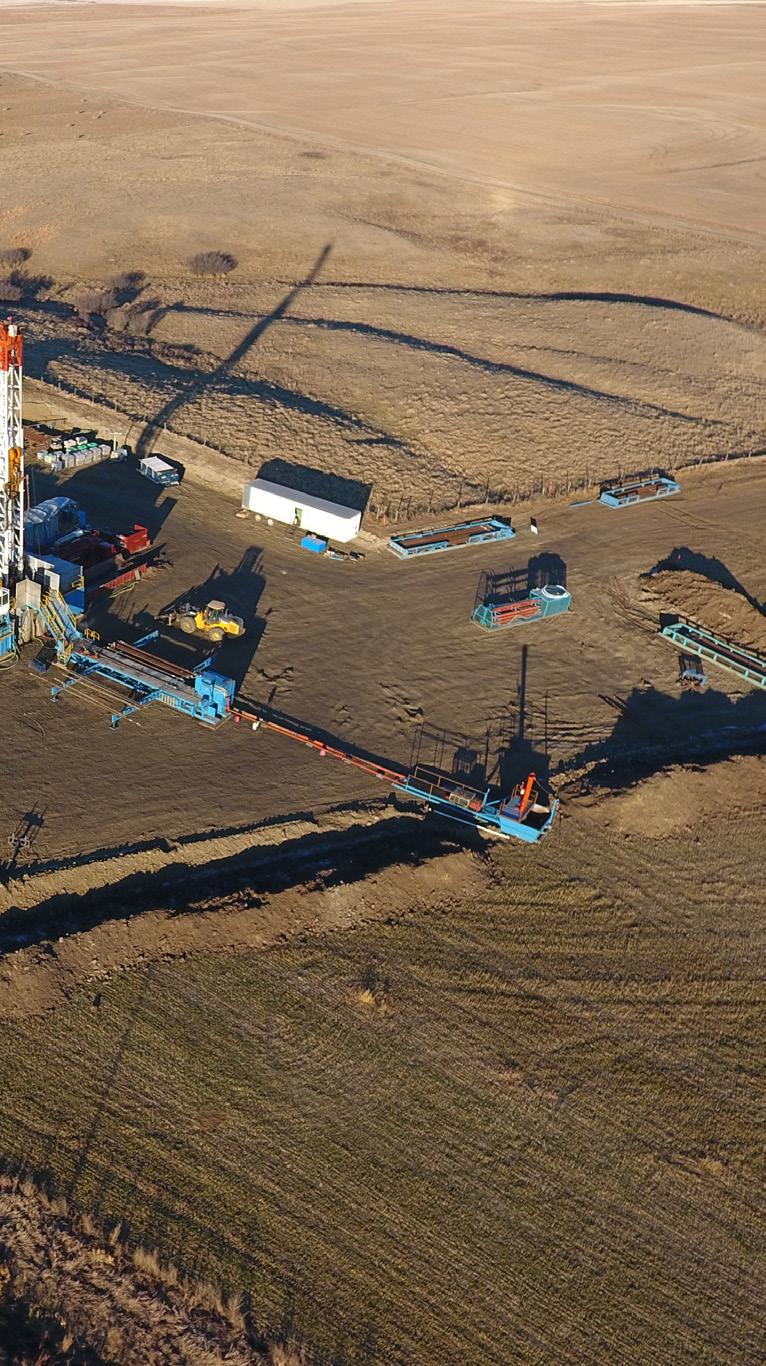
Right sizing production
Gensource’s first module from the Tugaske project will produce 250,000 tonnes per year of potash – a significantly smaller operation when compared with the Legacy project developed by the team in their former roles.
The Tugaske project will use a selective solution mining method along with industry-standard cooling crystallisation processing, both of which are driving the project’s unprecedented levels of efficiency and environmental sustainability.
In contrast to traditional solution mining, which uses fresh water to dissolve potash and salt underground,
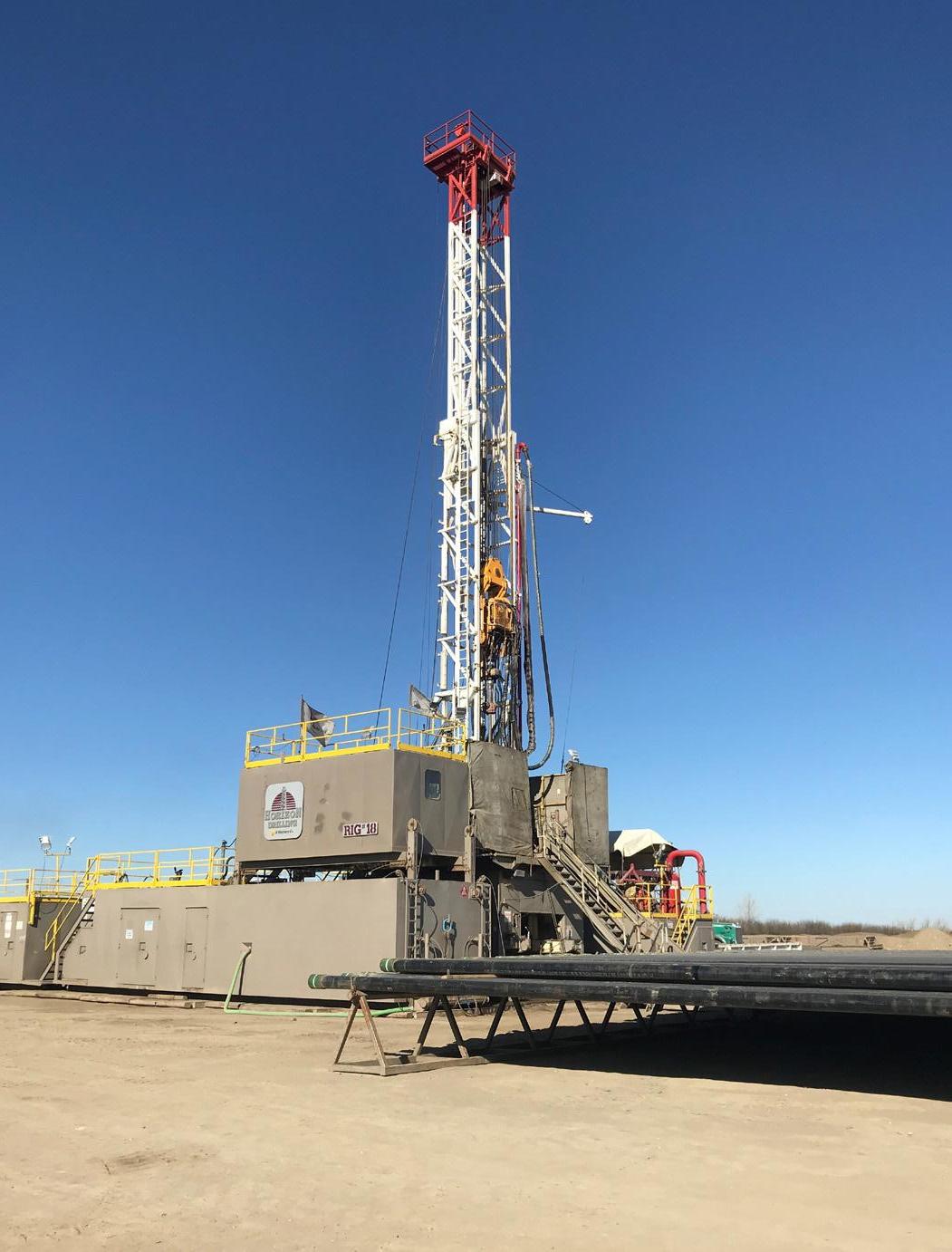
selective solution mining uses brine to only dissolve potash from underground caverns. The result is a significantly more efficient extraction, lower capex and opex, no salt tailings and no brine ponds.
A typical potash operation produces almost two tonnes of excess salt for each tonne of product produced, according to Ferguson. This is such a large volume that the minor secondary uses of the by

product become insignificant and subsequently, it ends up in large tailings piles next to the operation.
“These huge piles of salt then need to be encircled with control dykes or ponds, which represents a significant environmental issue because over time ponds leak, and you have brine migration down to groundwater sources. But with our method, we leave no salt tailings and have no need for surface brine ponds, for either tailings or cooling. Selective solution mining also uses about a quarter of the water per tonne of product compared to normal solution mining activity.
“Overall selective solution mining lets us be small and it puts us at the forefront of the whole industry from an environmental perspective.”
GENSOURCE POTASH AT A GLANCE

STOCK TICKER
TSXV:GSP
MARKET CAPITALISATION
US$25.5 million (as of April 22, 2020) ab j
Full environmental approval
In fact, having demonstrated the Tugaske’s negligible environmental impact to the local regulator, the Saskatchewan Ministry of the Environment, the project was granted full government approval without the need for Gensource to produce an Environmental Impact Assessment (EIA) – an unprecedented feat in the global potash sector.

At the local community level, the Tugaske project has also been warmly received due to its smaller scale compared to the 10 existing potash operations in Saskatchewan. All of these mines are much larger, often employing more than 2,000 construction workers over a period of up to five years and hundreds more long term at the project site during operations.
“The local communities in Saskatchewan are made up of small towns that can have as few as 50 people in them. If you show up with 2,500 construction workers for five years and 500 more people working there permanently, you can imagine it almost obliterates the community.”
However, in the case of Gensource’s Tugaske project there will be only 200 construction workers over a

period of less than two years, with only 42 people employed permanently at the site.
“Our size and the environmentally sustainable aspect of our project have been enthusiastically embraced by local towns and local governments as something that really fits in to the community, instead of dominating it,” Ferguson proudly asserts.
A direct link with the market
Gensource’s most recent project milestone was the capture of German conglomerate HELM AG as offtake partner for 100% of the production from Tugaske. Following the announcement in January, HELM is also expected to become an equity partner in the project.
“They plan to be a future owner of their own supply
Listen to what your reservoir is telling you with the help of our experts.
Subsurface consulting services for oil and gas, mining and renewable energy companies in Canada and worldwide.

Let our team of experienced reservoir professionals help you complete subsurface projects to your satisfaction and to the best industry standards.
SERVICES: • Petrophysical & seismic interpretation • Reservoir characterization • Geological modelling • Flow simulation of primary and enhanced oil recovery, solution mining and geothermal energy • Asset evaluation for acquisitions • Field development planning • Training and mentoring of junior reservoir engineers and geomodellers


chain, which is a key business tenet to Gensource – to create that streamlined supply chain in the potash world. We are working with HELM and one other financial partner and we are in the middle of the debt finance due diligence process.”
The lead bank that Gensource has mandated for the senior debt financing is KfW IPEXBank out of Germany – a world class lender according to the company. Ferguson reveals that Gensource expects to announce project financing milestones by late second quarter of this year.
With all environmental approvals in place and a bankable feasibility completed back in 2017, the Tugaske project is essentially ‘shovelready’, and the fulfilment of project financing is the last hurdle that Gensource must overcome before construction can begin.
This means that construction of the Tugaske project could begin as early as Q2 this year. The company estimates a twoyear construction period, with plant start up and first potash production slated for mid2022.
The start of something bigger
The Tugaske project resembles just the tip of the iceberg for Gensource and its radical plans for the global potash market. “The bigger business plan is all about becoming a new and independent producer in the potash industry and doing so by starting small. “We are starting with one module, but we plan to expand this with a second module that would bring our production to 500,000 tonnes per year. At the same time, we could start an entirely new project under a new JV company, operating in the same project area and of a similar small scale. “The idea is that these things can start out very small and can grow to suit the market. It allows us to grow in small increments to meet the requirements of the market, rather than what happens now with large multi-billion dollar investments that bring multi-million tonnages to the market, which negatively impact supply chains and prices.” Herein lies Gensource’s novel proposal for the future of the global potash industry – small, expandable production, more like manufacturing than mining, using environmentally sustainable methods while establishing a direct connection between the production facility and the global fertiliser market.
“We think our vision represents the way potash will be done in the future. Our method is clean, efficient and we have the market in mind” Mike Ferguson, Gensource Potash president and CEO
AFRICA. IN THE PALM OF YOUR HAND.

ONLINE NOW WWW.AFRICANBUSINESSNETWORK.CO.ZA
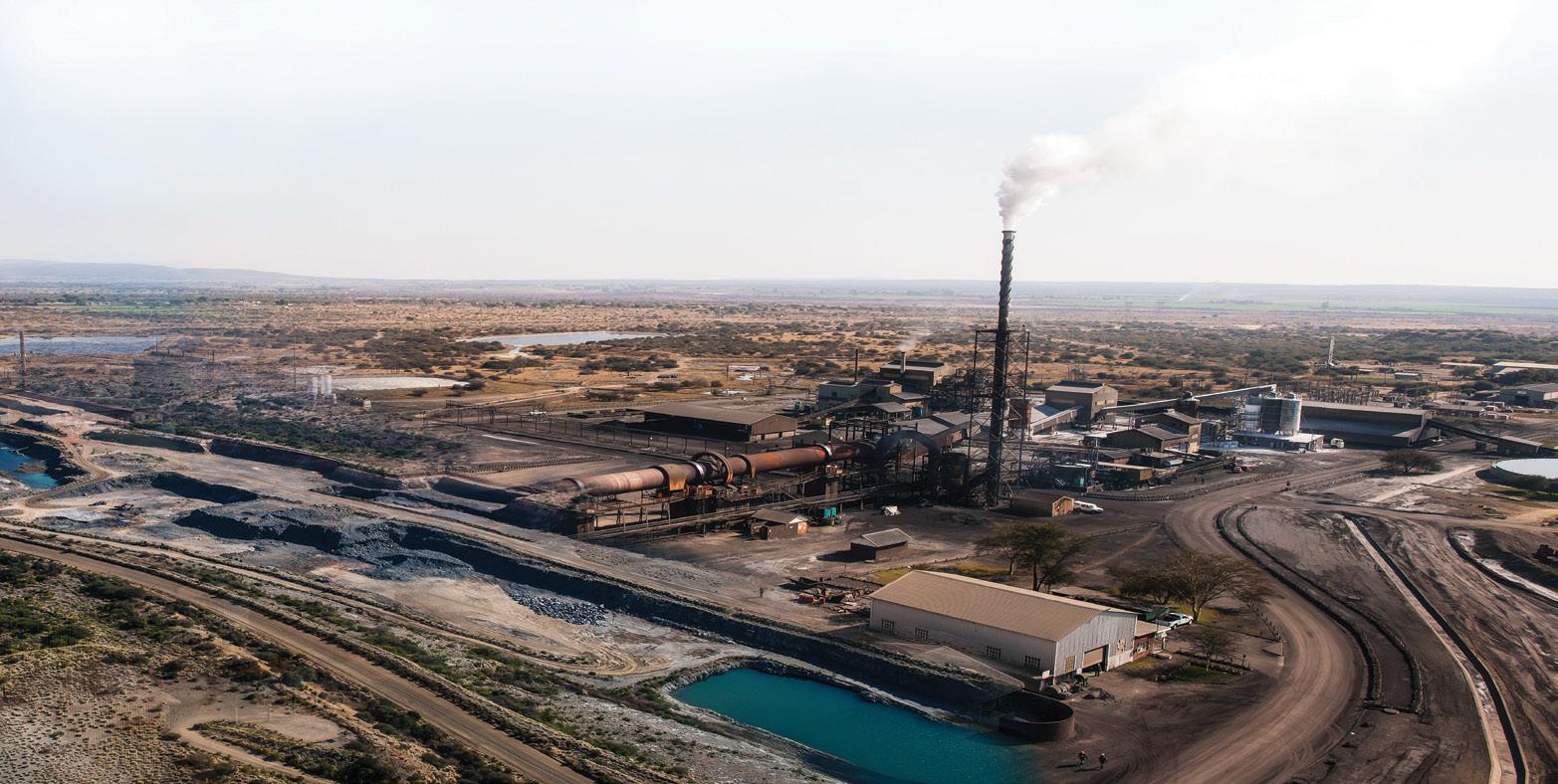

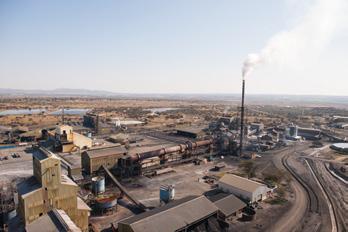


Bushveld Minerals’ vision is to grow into a significant, low cost and vertically integrated company comprising of primary vanadium production, electrolyte manufacturing, development and deployment of Vanadium Redox Flow Batteries in the energy markets. Our value proposition includes:
• Compelling commodity market anchored to steel with burgeoning demand from energy storage market • Largest primary vanadium resource base of ~550Mt with a grade 1.58-2.02% V₂O₅ in magnetite • Post the completion of the Vanchem acquisition Bushveld Minerals will own 2 of the 4 operating primary vanadium production processing facilities, with capacity to scale up production significantly • Bushveld Minerals will offer a diversfied product offering for the steel, chemical industry and energy storage market • Bushveld Minerals vertical integration strategy into energy storage provides a natural hedge to vanadium price volatility as well as a diversified revenue stream






